Description
ABSTRACT
The Neurological Basis of Statutory Defences in the Determination of Criminal Responsibility
Dr O. I. Derik-Ferdinand* and Gina Elvis-Imo**
Statutory criminal defences are formidable tools in the hands of the defence, specifically designed and aimed at mitigating or, in certain circumstances exculpating the defendant wholesomely from the harshness of criminal law and its jurisprudence. Criminal defences are so potent and efficacious in the domain of criminal law and its jurisprudence to the extent that, whenever any special defence is raised and properly defended during criminal proceedings, it could lead to absolute acquittal or punishment drastically reduced. These defences are statutorily provided and are known in Nigeria’s criminal law practice, procedure, and jurisprudence. Therefore, this paper examines the philosophical basis of criminal defences and ascertains categorically whether statutory criminal defences are neuroscientific in their statutory entrenchment and whether they are neurologically linked in their operational foundation. In addition, a critical assessment and evaluation of those defences from the provisions of the Criminal Code in Nigeria shall be conducted using neuroscientific oriented knowledge.
Keywords: Neurological, Basis, Defences, Statutory, Criminal, Responsibility, Mental element.
INTRODUCTION
The essence of having statutory and common law criminal defences is to either mitigate punishment or to secure outright exoneration of the defendant from being criminally responsible. Defences in criminal jurisprudence are mechanisms entrenched principally in statutes to strengthen further the actual realisation of the supremacy of the mental element of the offence over and above the physical element in the determination of criminal responsibility.
Defences are statutory shields at the disposal of the defendant. Once they are raised and successfully established, the defendant may be wholly absolved from responsibility or his punishment mitigated. The legal implications of relying on criminal defences are instead straightforward, which is a simple expression of acknowledgement of guilt by the defendant, on the premise that the defendant committed the offence epitomised by the physical element (actus reus), but under some compelling influence and control of specific circumstances and conditions which deprived the defendant of having the requisite inert capacity to make rational decisions,
*LL.B, LL.M, BL, PhD. ACI Arb., Legal Practitioner and Chartered Arbitrator, Egele & Egele Attorney-at-Laws, (Daniel Chambers), Nigeria. Senior Lecturer, Department of Legal Studies, Bayelsa State Polytechnic, Nigeria.
** LL.B, LL.M, BL, PhD. Associate Professor of Law and Acting Head of Department, Department Jurisprudence and Public Law, Faculty of Law, Niger Delta University, Nigeria. Email: gi**********@***il.com or el******@*****du.ng 0803 671 5245.

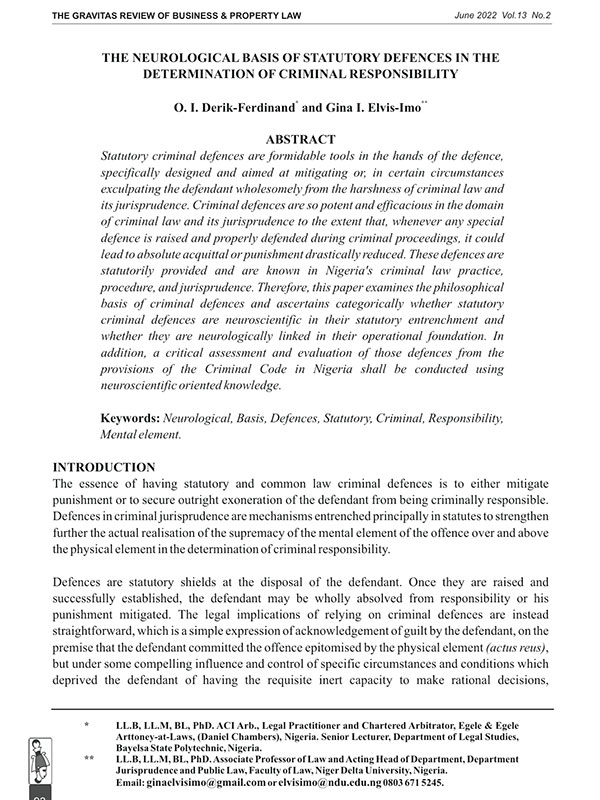
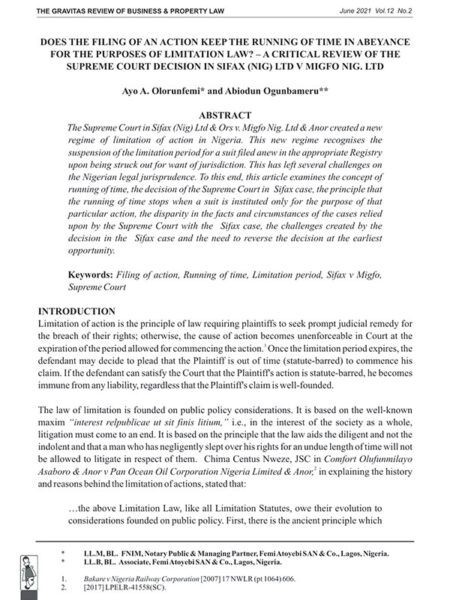
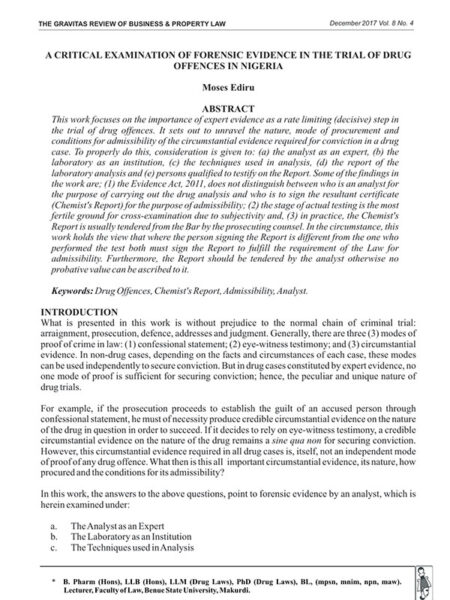
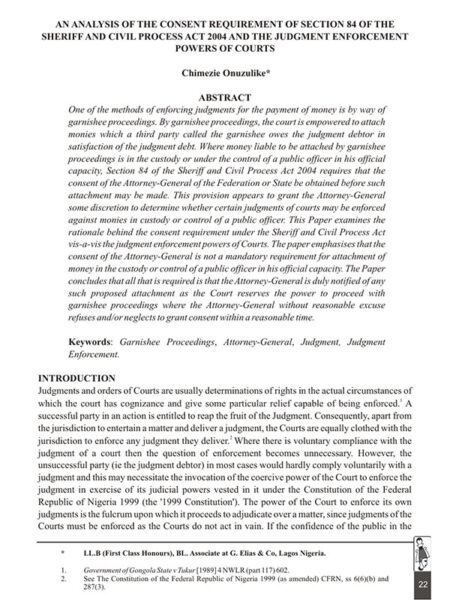
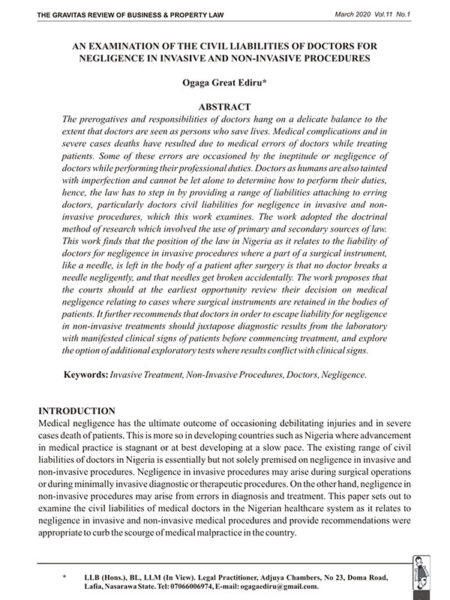


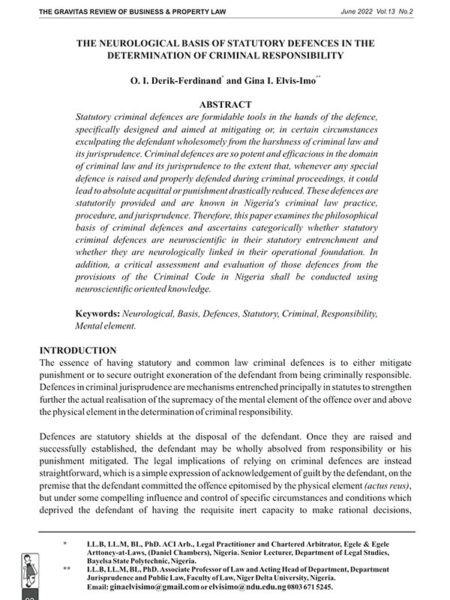
Reviews
There are no reviews yet.